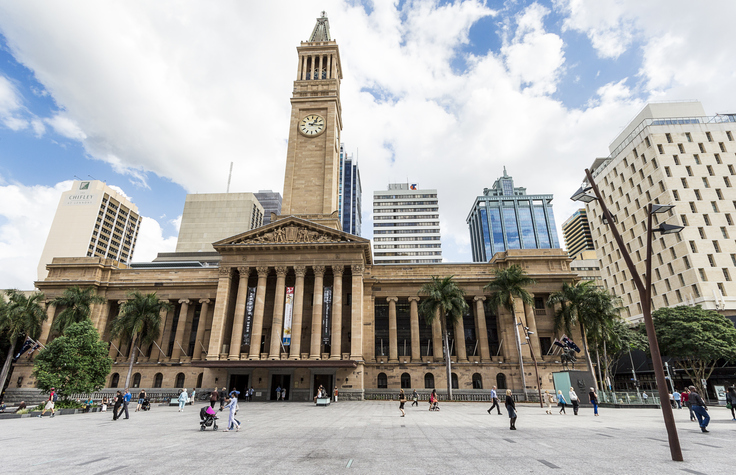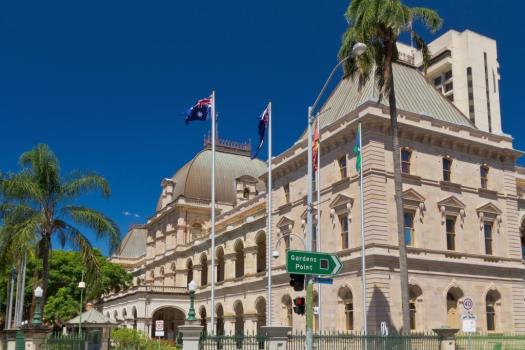
Queensland councils are preparing for a suite of reforms after the state government announced a shake-up of the sector aimed at stamping out corruption.
An information paper released by the Department of Local Government on Tuesday outlines key changes being considered across the sector including a clamp-down on dodgy financial practices, measures to bolster transparency and an overhaul of the voting system.
The changes would see the introduction of compulsory preferential voting, improved tracking of electoral finance and third party donations to candidates, campaign spending caps, a public register of councillor interests and key changes to mayoral powers.
Greg Hallam, president of the Local Government Association of Queensland on Friday slammed the plans to shake-up the voting system, raising concerns in an LGAQ newsletter they would create unnecessary paperwork.
“Under such changes, the potential for confusion and massive inconvenience in communities that have councils without electoral divisions is enormous,” he said.
The changes would also see candidates required to open a dedicated campaign account as soon as they announce their intention to run for council, advise of these bank details on nomination forms and spend only through this account.
Under the proposal, candidates looking to run at a local election will also have to undertake mandatory training and must disclose any membership of political parties, association with council or any links with developments in the area.
In addition to real-time disclosure of electoral donations and loans by candidates and third parties, candidates would also have to disclose gifts from individuals and companies, alongside details of the individual or business and whether they have business with council.
Expenditure caps of between $10,000-$20,000 for councillors and $30,000-$100,000 for mayors depending on the size of the electorate would also apply.
In a column posted on the Local Government Association of Queensland (LGAQ) website last Friday, CEO Greg Hallam expressed concern about the proposed voting changes and said the association had written to Premier Anna Palaszczuk asking her to publicly release full details of the proposed changes.
“The community needs to be properly consulted before legislation is introduced to parliament, not after the fact when the die has been well and truly been cast. To do otherwise would be a major breach of faith with the community,” he wrote.
“Voting systems are a matter for voters, and all current 579 elected members in our sphere of government, not solely a topic of discussion for the state government or even the LGAQ itself.”
LGAQ policy executive members held a telephone hook-up on Wednesday to determine the peak’s response.
Further comment has been sought from Cr Hallam.
Shake-up of mayoral powers
The reforms will also target conflicts of interest once councillors are elected, with councillors who have conflicts of interest prohibited from dealing with a matter unless council decides it’s in the public interest.
Spending will also be heavily regulated under the reforms, with discretionary funds capped at 0.25% of general rates for the amount of funds allocated and councillors unable to spend this amount from 1 January in the election year until the end of the election.
Councillors also risk being fired if they don’t submit a new register of interest 30 days after an election.
The reform would also see a change in mayoral powers.
Mayors would no longer be solely responsible for preparing and presenting budgets and a mayor’s power to direct the CEO and senior executive staff would also be restricted, with the CEO the only member of staff able to direct executive staff.
The recommendations follow the Crime and Corruption Commission’s Belcarra report, which in October 2017 found widespread non-compliance by Queensland councillors with legal obligations around political donations.
Local government Minister Stirling Hinchcliffe said the reforms will strengthen transparency and integrity in the sector.
“The Belcarra Report emphasised the need for transparency and accountability as the cornerstone of local government,” he said.
The State will consult extensively with the sector before introducing the measures, Minister Hinchliffe said.
“We want to create a more open and transparent system of local government in Queensland and that’s why we’re consulting with stakeholders,” he said.
“We want mayors, councillors and other stakeholders to have their say on reform and how to best achieve it.”
Comment below to have your say on this story.
If you have a news story or tip-off, get in touch at editorial@governmentnews.com.au.
Sign up to the Government News newsletter.



Greg. Unfortunately I cannot agree with your comments and a little bit disappointed. For
little administrative work and resources – if need be – an appropriate governance structure can be set up within each council and should be,particularly in this day and age where corruption, hacking, jobs positions and work are acquired under spurious situations. Even political positions are subject to this.I suggest you have a look at other local govt jurisdictions in each state particularly in Victoria as an example of how to set things up
Communities do not need to be consulted, after all in matters of governance they expect strong leadership in this area from their elected representatives to do what is right by them and the population in general.
Interesting and useful changes but there is still one very BIG problem.. “Mayors would no longer be solely responsible for preparing and presenting budgets and a mayor’s power to direct the CEO and senior executive staff would also be restricted, with the CEO the only member of staff able to direct executive staff.” The total power has been handed over to a single corporate executive…its already been shown that the CEO’s of some councils could not be trusted, so this seems to me to be quite nonsensical!
Answer: The whole council employs, sacks and does performance reviews of CEO. Also whole council owns budget. Mayor to be elected annually by secret ballot by councillors from among their number. No point in corrupting a mayor if he has only a 12 months tenure and has also had his/her wings clipped.
We need ICAC to replace the CCC with an independent head someone like Tony Fitzgerald. The people do not trust politicians anymore and we demand long jail time for corrupt Mayor’s and councillors. The LGAQ to be completely overhauled and its leaders changed every 8 years. ALL? council private companies to be disbanded and dealings open to the public. No donations from developers and a limit on the amount of core-flutes in each division.
I don’t agree with the introduction of compulsory preferential voting which is the cause of the duopoly party system (Labor, LNP) . Community also must be consulted all the times as councils as they are have too much power and have no respect for the community that they are “supposed” to serve. After all it’s rate payers money and we should have a say !
Yes, please return democratic processes by having local government representatives of residents and not simply business machines for development profiteering.